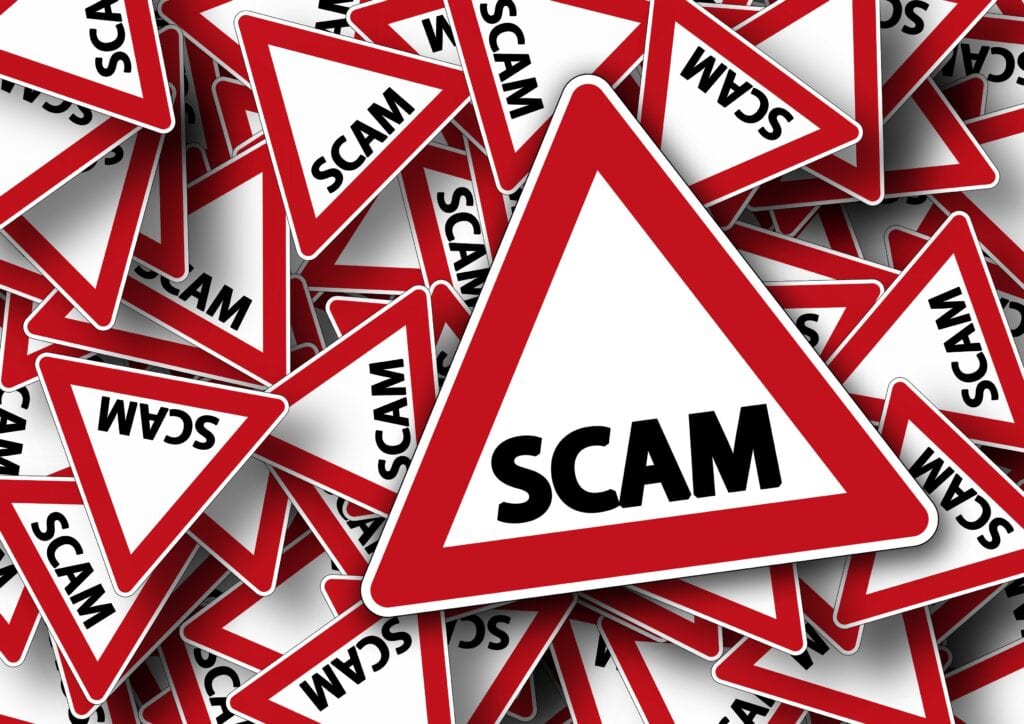Social media has revolutionized the World Wide Web and Facebook is leading that revolution.
The social media giant has 2.8 billion monthly users, of which 1.85 billion are daily users.
Facebook is one of the premier non-gaming applications worldwide. It generated 43.6 million downloads of its app in September of 2020.
People around the globe join the site to reconnect with old friends and to make new ones. Unfortunately, it also provides billions of opportunities for ne’er-do wells to target innocent users with their fraudulent schemes.
There are several types of Facebook scams. Here are a few.
COVID-19 information and requests
One prevalent COVID-19-related scam involves messages from a Facebook friend who has supposedly been infected or otherwise impaired by the virus and is in dire need of financial assistance. These appeals are often sent from cloned accounts, replete with real photos and stolen information, which disappear once the transfer of money takes place. Other scammers purport to be hospitals or health organizations requesting personal information, or offering “miracle cures or vaccines” for remarkably low costs. Be sure to double-check accounts, websites, and organizations through various sources before sending money, clicking links, or sharing personal data. Also, look for typos or strange wording, indicating the scammer may not be a legitimate entity.
Attention-grabbing posts
According to the Better Business Bureau, one of the most recent scams is called the “like-farming scam.” These posts are meant to evoke an intense emotional reaction. One method offers a tempting sale or offer on products if the user “likes, comments, and shares” while others encourage users to share the posts which are often heartwarming pictures or ones using faux-activism. Clicking on links could potentially put malware on your computer or ask that you submit personal information, including credit card or social security numbers, to claim your prize. If a post requires extensive sharing or personal information, check the original source for legitimacy.
Working from home
Since many people are working from home during the pandemic, scammers are keenly aware that people are looking for lucrative home jobs. They offer fantastic jobs that demand that would allow users to make an unbelievable amount of money working from home. They collect vital data from the users, including bank account statements, records, and social security numbers, then resell it to the highest bidder.
Quizzes
There are a plethora of quizzes on Facebook that will tell you everything from your personality type to your IQ. While these are entertaining, they often compromise your cybersecurity.
Some while asking for access to your profile, while others ask personal questions in the quiz itself.
You should only take quizzes on trusted sites, and also create fake answers for password recovery questions that are difficult to figure out. Facebook scammers may easily ascertain your mother’s maiden name, therefore, use an easy-to-remember lie.
A friend’s strange request
Hackers can crack a person’s password and access their FB account, then message their friends that they have lost their wallet in Costa Rica and ask you to send money. At first glance, it may be obvious it’s a scam, but there is part of you that thinks it is real and that your friend is indeed in trouble. If you’re afraid your friend is in an emergency situation, contact him or her on a platform other than Facebook.
Fake profiles used for online dating
If you receive a friend request from someone you don’t know or with whom you share no mutual friends, you should probably hit delete. A number of fraudulent online romantic relationships start this way and lead to one party requesting cash from the other or proposing marriage as part of an elaborate scam. Never pay for travel costs.
To protect yourself, you should change your settings so that you do not have a public profile.
If you’re already communicating with someone on Facebook, ask to video chat or meet in person, with someone accompanying you.
Giveaways
These posts appear almost daily on local buy and sell groups. Offers of free tiny houses, groceries, cars, and even money are yours for merely commenting “like.” The scammer then posts a link to obtain your magnificent prize. Once you click on a link, you will be redirected to a site that asks for personal information. This information may be used to steal your identity or your bank account. Do not click on any links.
Offers to pay you for advertising
Another frequent scam is posting offers to pay you hundreds of dollars to place advertising on your vehicle. Typically, the poster is in another country, such as Bangladesh. None of these offers are legitimate.
If you see a post that you have determined is fraudulent, report it to Facebook, and if it is a group page, also to the administrator of that page.
Remember the old adage, “If it sounds too good to be true, it probably is.”










